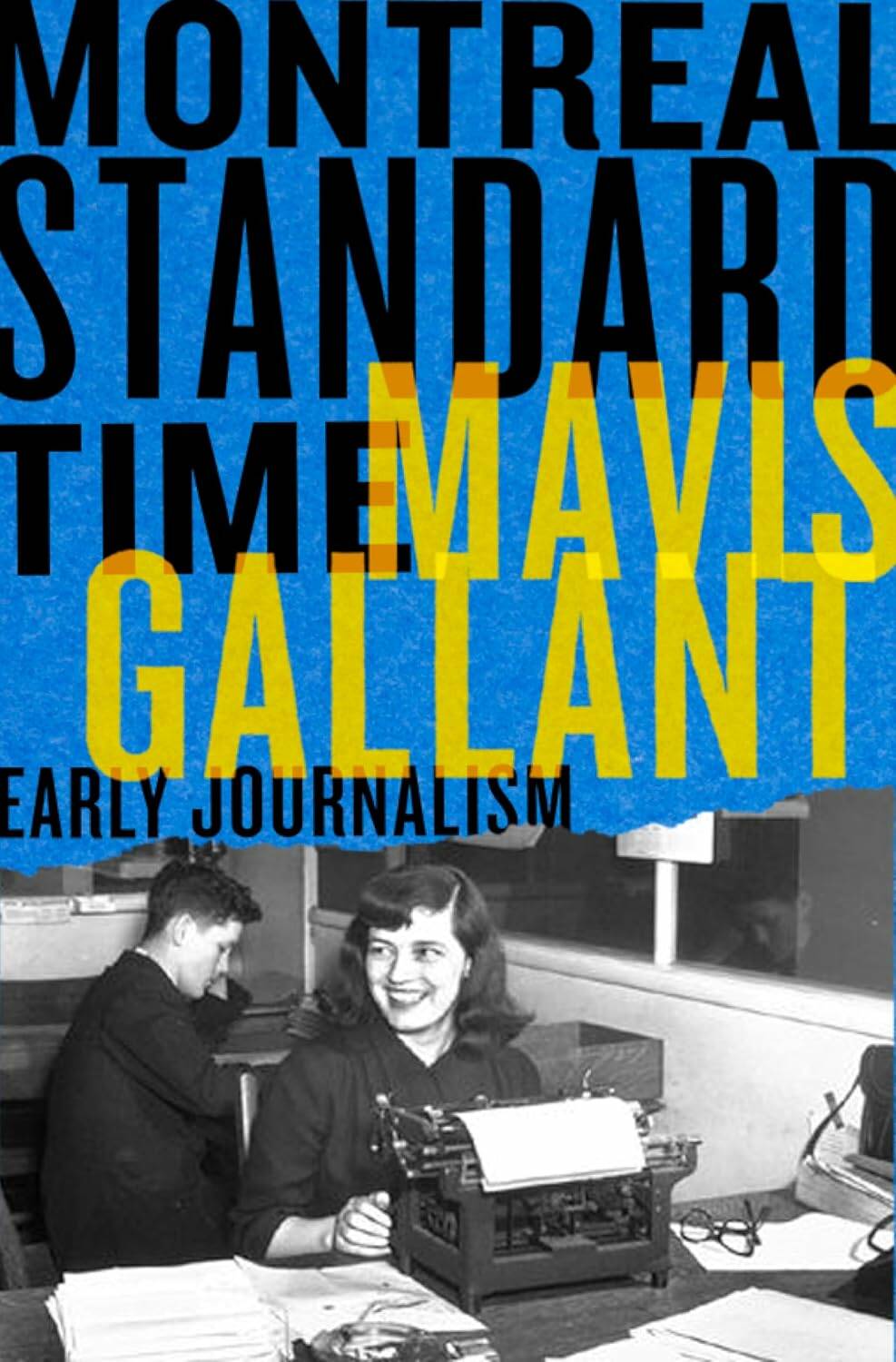Honing her voice
Mavis Gallant’s first foray into writing collected in compelling new account
Advertisement
Read this article for free:
or
Already have an account? Log in here »
To continue reading, please subscribe:
Monthly Digital Subscription
$0 for the first 4 weeks*
- Enjoy unlimited reading on winnipegfreepress.com
- Read the E-Edition, our digital replica newspaper
- Access News Break, our award-winning app
- Play interactive puzzles
*No charge for 4 weeks then price increases to the regular rate of $19.00 plus GST every four weeks. Offer available to new and qualified returning subscribers only. Cancel any time.
Monthly Digital Subscription
$4.75/week*
- Enjoy unlimited reading on winnipegfreepress.com
- Read the E-Edition, our digital replica newspaper
- Access News Break, our award-winning app
- Play interactive puzzles
*Billed as $19 plus GST every four weeks. Cancel any time.
To continue reading, please subscribe:
Add Free Press access to your Brandon Sun subscription for only an additional
$1 for the first 4 weeks*
*Your next subscription payment will increase by $1.00 and you will be charged $16.99 plus GST for four weeks. After four weeks, your payment will increase to $23.99 plus GST every four weeks.
Read unlimited articles for free today:
or
Already have an account? Log in here »
Hey there, time traveller!
This article was published 23/11/2024 (361 days ago), so information in it may no longer be current.
Mavis Gallant’s literary fame rests largely on her short stories. Over her career, starting in the early 1950s, she published 116 stories in the New Yorker magazine.
But her star was late to rise in Canada.
Gallant, a native Montrealer, remained long past due to be published in her home country. Her fiction didn’t surface in Canada until the late 1970s. Nonetheless, in 1981 she won the Governor General’s Literary Award for fiction, for her short-story collection Home Truths.
Ian Barrett / Canadian Press files
Mavis Gallant, seen here in 1981, won the Governor General’s Literary Award for fiction for her collection Home Truths.
The title of this collection, Montreal Standard Time, is an allusion to the period (1944-1950) she spent as a reporter for a national weekly newspaper, the long-defunct Montreal Standard. (It ceased publication in 1951.)
The 38 pieces collected here comprise some of the features she wrote for that paper prior to leaving journalism in 1950 to move to Europe to write fiction. She ultimately settled in Paris, and though she never surrendered her Canadian citizenship, she remained a Parisienne until her death in 2014.
(Local footnote regarding her surname: Gallant’s birth name was Young. She married Winnipeg musician John Gallant in 1942; the two divorced in 1947.)
The volume is edited by former University of Winnipeg English professor and administrator Neil Besner, ex-Winnipegger, writer and former CBC Radio broadcaster Bill Richardson and Sorbonne Nouvelle professor emeritus Marta Dvorak.
Technically, as her earliest published work, these pieces of longer-form journalism are her juvenilia, a spongy literary label that doesn’t do them justice.
As pointed out in the volume’s excellent preface by Gallant’s literary executrix, Mary K. MacLeod, “Because she was writing during the (Maurice) Duplessis era, the paper had a policy of not engaging in political and religious matters.” That constraint notwithstanding, Gallant’s ostensibly cultural and lifestyle pieces weren’t lightweight.
The essays — because that’s what they most resemble, in miniature — include subjects such as the plight of immigrants, mercy killing, unwed mothers, the horrific condition of nursing homes, feminism and suffrage, existentialism, street kids, crime and its genesis, war brides and returning Second World War vets coping with re-adjustment to civilian life.
A couple are extraordinarily prescient.
Her piece about mercy killing, written nearly three quarters of a century ago, presents many of the contemporary arguments pro and con Canada’s current, and currently pending amendment, MAID (medical assistance in dying) legislation. Likewise, her piece on nursing-home care foreshadows the multiple-deaths disasters that befell our aged in care homes when COVID-19 hit them like the plague.

Montreal Standard Time
There’s also a witty contrarian take on Freudian psychoanalysis, then in vogue, and its invasion of every nook and cranny of the arts and popular culture that still resonates today.
The one major weakness that leaps out at anyone remotely familiar with newspaper and magazine reporting practices and protocols is the frequent lack of clear attribution, in both direct and indirect quotes, in many pieces.
Time and again an official, friend or witness cited as the source isn’t identified by name, office or title. It’s a chronic and curious omission. Neither her literary executrix’s preface nor the respective editors’ introduction, afterword or annotations addresses the lapse.
That said, the writing is ever clear and engaging, and even bravely offbeat for the times and the publication they appeared in. Moreover, there are moments when you detect early efforts to blend factual reporting with the narrative techniques of fiction.
Collectively, the pieces provide revealing glimpses of a gifted writer-to-be.
Douglas J. Johnston is a Winnipeg lawyer and writer.

